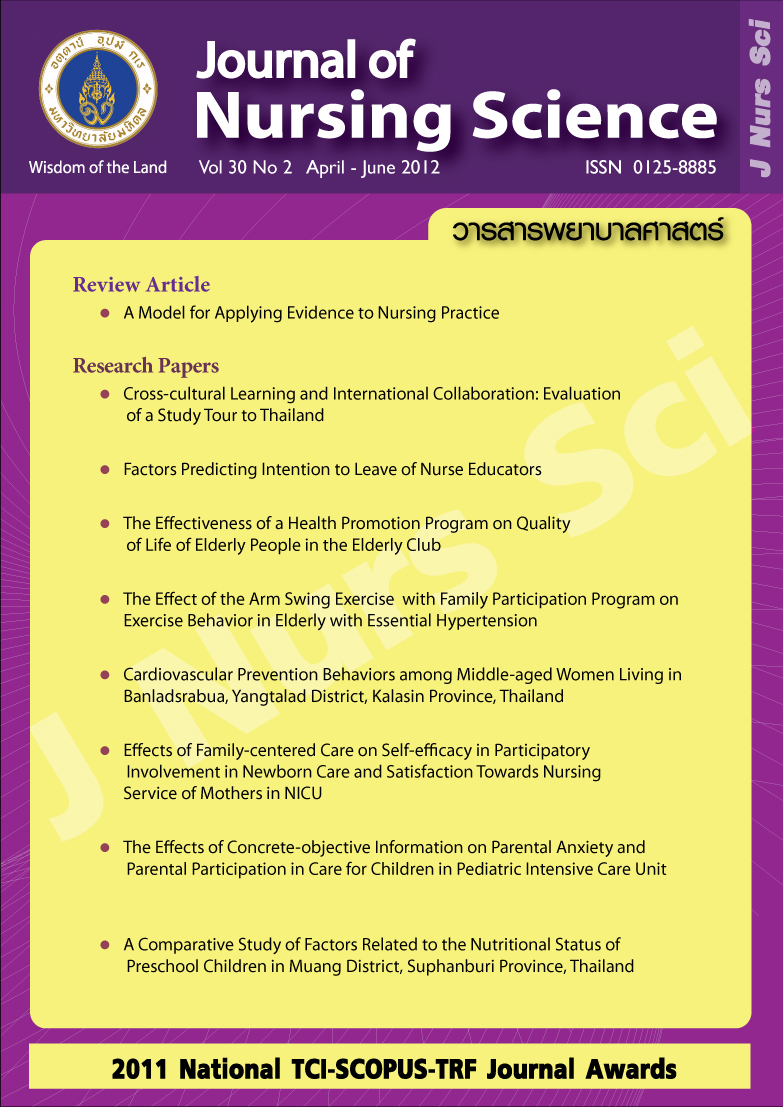The Effect of the Arm Swing Exercise with Family Participation Program on Exercise Behavior in Elderly with Essential Hypertension
Main Article Content
Abstract
Purpose: To examine the effect of family support on developing exercise behavior among elderly with essential hypertension using the arm swing exercise program.
Design: Quasi-experimental research design.
Methods: From 8 villages, sixty-two essential hypertension patients at a medical clinic of one
hospital were randomly selected into the experimental and control groups with 31 each. The experimental group received the arm swing exercise program with family members supporting during the program, while those in the control group did the exercise without family participation. Data were collected through the exercise behavior questionnaire before and after the program, and were tested by paired t-test and independent t-test.
Main findings: After receiving the program, the exercise behaviors of the experimental group were significantly better than that of the control group in terms of the time used in daily exercise (p < .001), frequency of exercise during a week (p < .05), and number of arm swing (p < .001).
Conclusion and recommendations: The study findings suggest that exercise promoting program should involve family members to help encouraging and supporting the elderly to exercise consistently.
Article Details
Copyright Notice: Nursing Science Journal of Thailand has exclusive rights to publish and distribute the manuscript and all contents therein. Without the journal’s permission, the dissemination of the manuscript in another journal or online, and the reproduction of the manuscript for non-educational purpose are prohibited.

Disclaimer: The opinion expressed and figures provided in this journal, NSJT, are the sole responsibility of the authors. The editorial board bears no responsibility in this regard.


